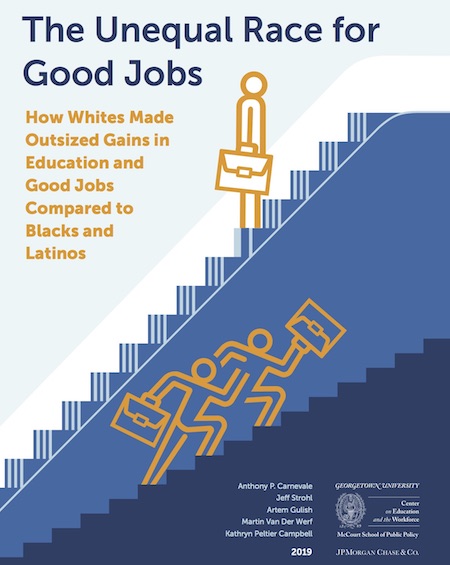 New research from the Georgetown University Center on Education and the Workforce finds that White workers have benefited from historical and systemic educational and economic advantages to build a disproportionate edge in the educational pipeline and the workforce that will continue to last for decades.
New research from the Georgetown University Center on Education and the Workforce finds that White workers have benefited from historical and systemic educational and economic advantages to build a disproportionate edge in the educational pipeline and the workforce that will continue to last for decades.
The research found that in 2016, White workers held 77 percent of good jobs in the United States even though they collectively held 69 percent of all jobs. Black workers held 10 percent of good jobs even as they held 13 percent of all jobs. “Good jobs” are defined in the report as those that pay family-sustaining earnings with a minimum of $35,000 for workers between the ages of 25 and 44 and at least $45,000 for workers between the ages of 45 and 64.
Furthermore, the study found that Black workers with good jobs are paid less than White workers with good jobs at every level of education. Among workers with good jobs, Whites are paid $554 billion more annually than they would be if good jobs and good job earnings were equitably distributed, whereas Blacks are paid $202 billion less.
“The White surge in college education sets up Whites for decades of continued economic dominance,” said Anthony P. Carnevale, lead author of the report and director of the Center on Education and the Workforce at Georgetown University.
The study, The Unequal Race for Good Jobs: How Whites Made Outsized Gains in Education and Good Jobs Compared to Blacks and Latinos, may be accessed here.

